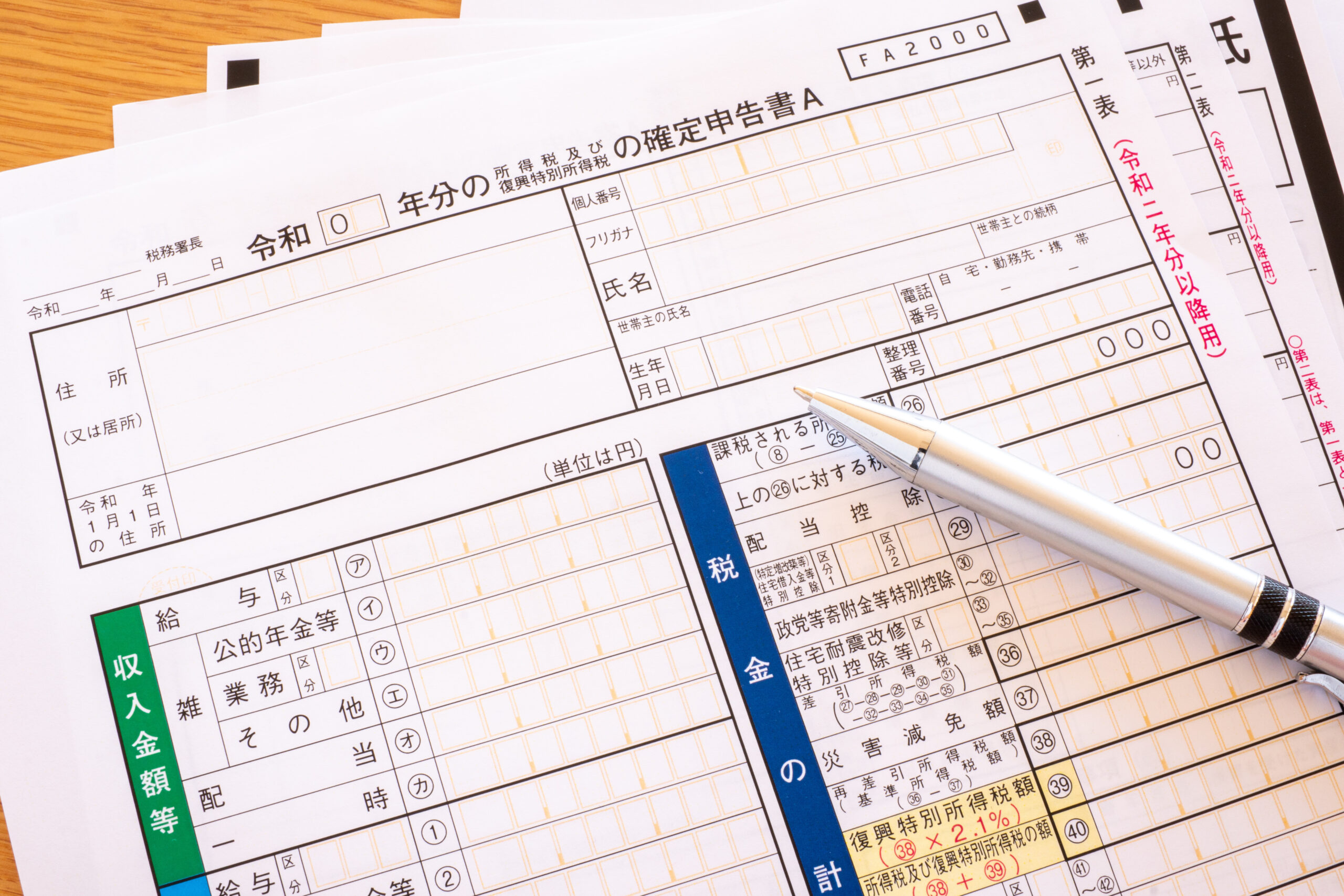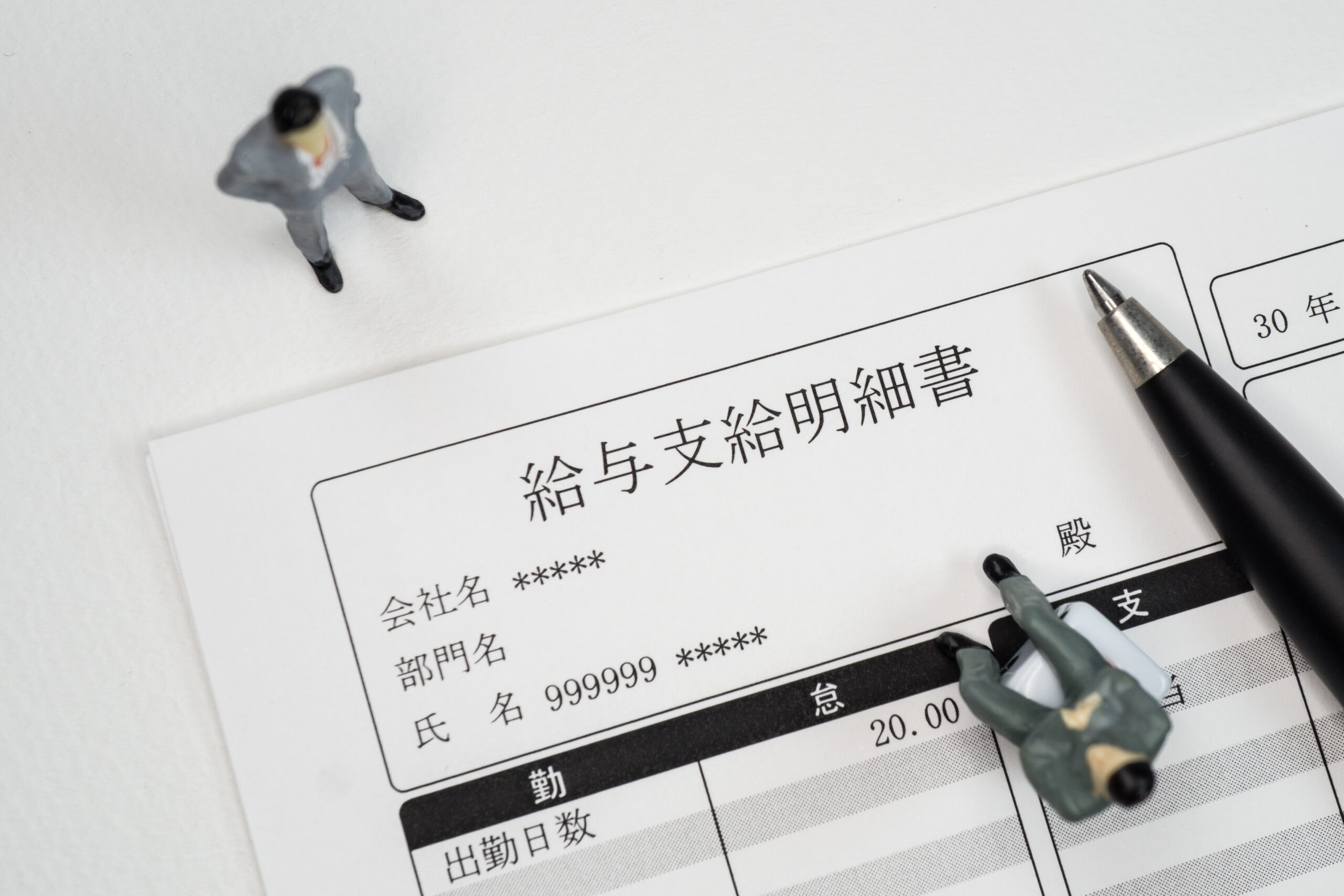Essential Tax Filing Guide for Foreign Residents in Japan: Understanding Your Obligations

For foreign residents in Japan, understanding tax obligations can be a complex yet essential part of living and working in the country. While many may think that only self-employed individuals need to file a tax return, there are various circumstances—such as freelance work, side income, or exceeding certain income thresholds—where filing becomes necessary.
This comprehensive guide will clarify when and why you might need to file a tax return, the differences between blue and white tax returns, and the available deductions that can help you optimize your tax situation. By the end of this article, you’ll be equipped with the knowledge to navigate your tax responsibilities confidently, ensuring compliance and maximizing your financial benefits while living in Japan.
Understanding Tax Residency in Japan
What is Tax Residency?
Tax residency is a crucial concept that determines an individual’s tax obligations in Japan. In general, a person is considered a tax resident if they have a permanent residence in Japan or if they have lived in the country for a significant period. Tax residency affects how income is taxed, including the types of income subject to taxation and the applicable tax rates.
In Japan, there are two main categories of tax residency: resident and non-resident. A resident is someone who has lived in Japan for more than one year or has a permanent residence. Residents are taxed on their worldwide income, meaning that all income earned both within and outside Japan is subject to Japanese taxation. This includes salaries, business income, investment income, and any other sources of income.
On the other hand, a non-resident is someone who has lived in Japan for less than one year. Non-residents are only taxed on their Japan-sourced income, which includes income earned from employment, business activities, or property located in Japan. Understanding your tax residency status is essential, as it directly impacts your filing requirements and the amount of tax you owe.
In summary, determining your tax residency status is the first step in understanding your tax obligations in Japan. It is important to assess your living situation and the duration of your stay to ensure compliance with Japanese tax laws.
Criteria for Determining Tax Residency
The criteria for determining tax residency in Japan are primarily based on the duration of stay and the nature of your residence. The Japanese tax system uses two main factors to classify individuals as residents or non-residents: length of stay and permanent residence.
- Length of Stay: If you have lived in Japan for more than one year, you are classified as a resident. This includes both continuous and cumulative stays. For example, if you leave Japan and return within a year, the time spent in Japan is combined to determine your residency status. Conversely, if you have been in Japan for less than one year, you are considered a non-resident.
- Permanent Residence: If you hold a permanent resident visa or have established a permanent home in Japan, you are classified as a resident regardless of the duration of your stay. This status applies even if you have spent less than one year in the country. A permanent residence indicates a long-term commitment to living in Japan, which subjects you to taxation on your worldwide income.
Additionally, the Japanese tax authorities may consider other factors, such as your family ties, economic interests, and social connections in Japan, to assess your residency status. These factors can influence whether you are deemed a resident or non-resident, particularly in complex situations.
In conclusion, understanding the criteria for determining tax residency is essential for foreign residents in Japan. It helps clarify your tax obligations and ensures compliance with local laws.
Types of Income Subject to Taxation
Employment Income
In Japan, employment income is one of the primary sources of taxable income for residents and non-residents alike. Employment income includes salaries, wages, bonuses, and any other compensation received from an employer for services rendered. The taxation of employment income is governed by the Income Tax Law, which outlines how this income is calculated and taxed.
For residents, employment income is subject to progressive tax rates, which means that the tax rate increases as the income level rises. The rates range from 5% to 45%, depending on the total taxable income. Additionally, residents are also subject to local inhabitant taxes, which are charged by municipal and prefectural governments. These taxes are typically around 10% of the income tax amount.
Employers in Japan are required to withhold income tax from employees’ salaries through a system known as withholding tax. This means that the tax is deducted from the employee’s paycheck before they receive their net salary. At the end of the tax year, employees must file a tax return to report their total income and calculate any additional tax owed or refunds due.
For non-residents, employment income is taxed at a flat rate of 20% on Japan-sourced income. This includes income earned from work performed in Japan, regardless of the duration of stay. Non-residents are not subject to local inhabitant taxes.
In summary, employment income is a significant component of taxable income in Japan, with specific rules governing its taxation for both residents and non-residents.
Self-Employment Income
Self-employment income refers to income earned by individuals who operate their own businesses or work as freelancers. In Japan, self-employed individuals are subject to different tax regulations compared to employees. The taxation of self-employment income is also governed by the Income Tax Law.
Self-employed individuals must report their income and expenses on their annual tax return. The net income, which is calculated by subtracting allowable business expenses from gross income, is subject to progressive tax rates similar to those applied to employment income. The rates range from 5% to 45%, depending on the total taxable income.
Self-employed individuals can also choose between two types of tax filing: blue return (青色申告) and white return (白色申告). The blue return allows for more deductions and benefits, such as the ability to carry forward losses to offset future income. To qualify for the blue return, individuals must maintain proper accounting records and submit an application to the tax office.
In addition to income tax, self-employed individuals are also required to pay consumption tax if their annual sales exceed a certain threshold. The current consumption tax rate is 10%, which applies to most goods and services.
It is important for self-employed individuals to keep accurate records of their income and expenses to ensure compliance with tax regulations and to maximize allowable deductions. Filing a tax return accurately and on time is crucial to avoid penalties and interest.
Tax Filing Requirements for Foreign Residents
Who Needs to File?
In Japan, the requirement for foreign residents to file a tax return depends on their income level and specific circumstances. Here are the key situations in which filing a tax return is necessary:
- Employment Income Exceeding 20 Million Yen: If your annual salary exceeds 20 million yen, you are required to file a tax return. This is because, in such cases, the year-end adjustment (年末調整, nenmatsu chousei) performed by employers is insufficient to settle your tax obligations.
- Multiple Sources of Employment: If you receive salary payments from two or more employers, you must file a tax return. This is necessary to accurately calculate your total income and tax liability.
- Additional Income Sources: If you have income from sources other than your salary, such as rental income, capital gains from selling stocks, or other investments, you are required to file a tax return regardless of your salary level. This applies to both residents and non-residents.
- Deductions and Credits: If you wish to claim deductions, such as medical expense deductions, you must file a tax return. This allows you to report your eligible expenses and potentially reduce your taxable income.
- Residents and Worldwide Income: Residents of Japan are taxed on their worldwide income, which includes income earned both in Japan and abroad. However, tax treaties may affect how foreign income is taxed, so it is essential to consider these agreements when filing.
Understanding these requirements is crucial for foreign residents to ensure compliance with Japanese tax laws and avoid penalties for failing to file when necessary.
Filing Deadlines

In Japan, the tax filing period for individual income tax returns typically begins on February 16 and ends on March 15 of the following year. This timeframe applies to the income earned during the previous calendar year (January 1 to December 31).
Here are the key points regarding the filing deadlines:
- Start Date: The filing period officially starts on February 16. This is when taxpayers can begin submitting their tax returns to the National Tax Agency (国税庁, Kokuzeichō).
- End Date: The deadline for submitting tax returns is March 15. Taxpayers must ensure that their returns are postmarked or submitted online by this date to avoid penalties.
- Extensions: While the standard filing period is from February 16 to March 15, extensions are generally not granted. However, if you are unable to file by the deadline due to extenuating circumstances, it is advisable to contact the National Tax Agency (NTA) for guidance.
- Payment of Taxes: Any taxes owed must also be paid by March 15. Failure to pay by this date may result in additional penalties and interest on the unpaid amount.
- Special Cases: For individuals who are required to file due to specific circumstances, such as having income from multiple sources or claiming deductions, the same deadlines apply.
It is essential for foreign residents in Japan to be aware of these deadlines to ensure timely filing and compliance with tax regulations. For the most accurate and up-to-date information, refer to the National Tax Agency’s official website.
Choosing the Right Tax Filing Method
When navigating the complexities of income tax returns in Japan, taxpayers must choose between two primary options: the Blue Form (青色申告, ao-iro shinkoku) and the White Form (白色申告, shiro-iro shinkoku). Each method has distinct requirements, advantages, and implications for tax liability. Understanding these differences is essential for making an informed decision that aligns with your financial situation.

Blue Form vs. White Form Tax Returns
The Blue Form tax return is tailored for individuals engaged in business activities or self-employment. To utilize this method, taxpayers must meet specific criteria set by the National Tax Agency (NTA) and submit an application for Blue Form status. Here are the key features:
- Eligibility: The Blue Form is available to individuals with business income, real estate income, or forestry income. Taxpayers must apply for approval from the tax office, with the application deadline being two months from the start of a new business or by March 15 of the tax year for existing businesses.
- Accounting Requirements: Taxpayers opting for the Blue Form are required to maintain detailed accounting records, typically through double-entry bookkeeping. However, small businesses meeting certain criteria may be allowed to use simplified bookkeeping methods.
- Tax Benefits: One of the most significant advantages of the Blue Form is the ability to claim various deductions, including the Blue Form Special Deduction. Taxpayers can benefit from a deduction of up to 650,000 yen if they file electronically or maintain electronic records, or 550,000 yen under other circumstances. Additionally, Blue Form filers can carry forward losses from previous years, allowing them to offset taxable income in future years.
In contrast, the White Form is a simpler filing method primarily suited for individuals with straightforward income sources, such as salaried employees or those with minimal business income. Here are its key features:
- Eligibility: The White Form is available to anyone who does not qualify for the Blue Form, including salaried employees, pensioners, and individuals with limited self-employment income.
- Accounting Requirements: The White Form requires less stringent accounting practices. Taxpayers can use a simplified method of record-keeping, typically involving single-entry bookkeeping to track income and expenses.
- Tax Benefits: While the White Form does not offer the extensive deductions available to Blue Form filers, it remains a viable option for those with uncomplicated tax situations. Taxpayers can claim standard deductions and certain allowances, but they will not have access to the more significant deductions associated with the Blue Form.
Benefits of Each Filing Method
The choice between the Blue Form and the White Form depends on individual circumstances, including income sources, business activities, and financial goals. Here are the benefits of each filing method:
Benefits of the Blue Form
- Higher Deductions: The Blue Form allows for greater deductions, including the ability to carry forward losses from previous years. This can significantly reduce taxable income and lower overall tax liability.
- Tax Planning Opportunities: With more detailed accounting records, Blue Form filers can engage in more effective tax planning, optimizing their financial strategies to minimize tax burdens.
- Access to Special Deductions: Blue Form filers can benefit from special deductions, such as the Blue Form Special Deduction, which can provide substantial tax savings.
- Credibility with Financial Institutions: Maintaining detailed records and filing a Blue Form tax return can enhance credibility with banks and financial institutions, making it easier to secure loans or financing for business activities.
Benefits of the White Form
- Simplicity: The White Form is straightforward and easier to complete, making it an ideal choice for individuals with uncomplicated tax situations. This simplicity can save time and reduce the stress associated with tax filing.
- Lower Compliance Costs: Since the White Form requires less detailed accounting, taxpayers may incur lower compliance costs, such as fees for accounting services or software.
- Suitable for Salaried Employees: For salaried employees or those with minimal self-employment income, the White Form is often sufficient to meet tax obligations without the need for complex record-keeping.
- Quick Filing Process: The filing process for the White Form is generally quicker, allowing taxpayers to complete their returns and submit them to the National Tax Agency without extensive preparation.
Ultimately, selecting between the Blue Form and the White Form for tax returns should be based on your unique financial situation and goals. It’s important to assess your income sources, accounting skills, and potential tax advantages to choose the filing method that best fits your needs.
Necessary Documents for Tax Filing
Filing your income tax return in Japan requires careful preparation and the collection of specific documents. The required paperwork varies depending on whether you are a salaried employee or self-employed. Below is a clear and comprehensive guide to the necessary documents, based on official information from the National Tax Agency (NTA).

Commonly Required Documents
The following documents are typically required for all taxpayers, regardless of employment status:
- Withholding Tax Statement (源泉徴収票, Gensen Chōshū Hyō)
For salaried employees, the 源泉徴収票 (Gensen Chōshū Hyō) is the most important document. This statement, issued by your employer, summarizes your total income, taxes withheld, and deductions for the year. If you have multiple employers, you will need a statement from each one. - Proof of Other Income
If you have income from sources other than your salary, such as rental income, dividends, or interest, you must provide supporting documents. Examples include:- Rental Income: Lease agreements or income-expense statements.
- Dividend Income: Dividend statements issued by financial institutions.
- Interest Income: Bank statements showing interest earned.
- Receipts for Deductions
To claim deductions, you must submit proof of eligible expenses. Examples include:- Medical Expense Deduction: Receipts for medical treatments.
- Social Insurance Premium Deduction: Certificates for social insurance payments.
- Life Insurance Premium Deduction: Certificates issued by your insurance provider.
- Identification Documents
You need to provide a copy of an official identification document to verify your identity. Acceptable forms include:- My Number Card (マイナンバーカード): This is your unique identification number for tax purposes.
- Other Identification: You can also use a passport or driver’s license as proof of identity and residency.
- Bank Account Information
If you are expecting a tax refund, you must provide your bank account details, including the bank name, branch name, account number, and account type.
Additional Documents for Self-Employed Individuals
Self-employed individuals, including those with business income or rental income, must prepare additional documents to accurately report their income and expenses:
- Records of Business Income
Maintain detailed records of all income earned through your business. This includes invoices, receipts, and any other documentation that verifies your earnings. - Receipts for Business Expenses
To claim business-related expenses, you must provide receipts for all eligible costs. Examples include:- Office supplies
- Equipment purchases
- Travel expenses
- Utility bills for business use
- Accounting Records The type of bookkeeping required depends on your tax filing method:
- Blue Form Filers: Double-entry bookkeeping (複式簿記, Fukushiki boki) is mandatory. You must prepare detailed ledgers, such as a general ledger (総勘定元帳, Sōkanjō motochō) and journal (仕訳帳, Shiwakechō).
- White Form Filers: Simplified bookkeeping (簡易簿記, Kan’i boki) is acceptable, but you must still record income and expenses accurately.
- Previous Year’s Tax Return
While not mandatory, having a copy of your previous year’s tax return can be helpful for reference and consistency in reporting. - Blue Form Approval Document (if applicable)
If you are filing under the Blue Form system, you must have submitted an application for Blue Form approval to the tax office. Keep a copy of this approval document for your records. - Other Relevant Documents
Depending on your business activities, additional documents may be required, such as:- Licenses or permits related to your business.
- Contracts or agreements with clients or vendors.
Additional Notes and Best Practices
- Refer to Official Resources: For the most accurate and up-to-date information, consult the National Tax Agency’s website:
- Document Retention: Keep all tax-related documents for at least five years, as required by Japanese tax law.
- Seek Professional Advice: If your tax situation is complex or you are unsure about specific requirements, consult a certified tax accountant (税理士) for guidance.
By ensuring that you have all the necessary documents prepared in advance, you can streamline the tax filing process and avoid delays or errors. Proper preparation is key to meeting your obligations and taking full advantage of any deductions or benefits available to you.

Understanding Tax Deductions and Credits in Japan
Tax deductions and credits are essential tools that can significantly reduce your taxable income and overall tax liability in Japan. It’s crucial to understand how these work to ensure you’re maximizing your tax benefits and complying with Japanese tax regulations.
Standard Deductions Available to All Taxpayers (所得控除 – Shotoku Kōjo)
These deductions are available to all taxpayers in Japan, regardless of nationality. They directly reduce your taxable income.
- Basic Deduction (基礎控除 – Kiso Kōjo): This is a universal deduction granted to all taxpayers. For the 2024 tax year (令和6年), the basic deduction is ¥480,000.
- Deduction for Dependents (扶養控除 – Fuyō Kōjo): You can claim deductions for qualifying dependents you support. The deduction amount varies based on the dependent’s age and relationship to you:
- General Dependents (16 years or older): ¥380,000
- Specific Dependents (特定扶養親族 – Tokutei Fuyō Shinzoku, 19 to 22 years old): ¥580,000
- Elderly Dependents (70 years or older):
- Not living with you: ¥480,000
- Living with you (同居老親等 – Dōkyo Rōshin tō): ¥580,000
- Medical Expense Deduction (医療費控除 – Iryōhi Kōjo): If your medical expenses exceed a certain threshold, you can deduct the excess. The threshold is calculated as the total medical expenses minus either ¥100,000 or 5% of your total income, whichever is lower.
- Social Insurance Premium Deduction (社会保険料控除 – Shakai Hokenryō Kōjo): Premiums paid for social insurance programs like health insurance, pension (国民年金 – Kokumin Nenkin or 厚生年金 – Kōsei Nenkin), and employment insurance are fully deductible.
- Life Insurance Premium Deduction (生命保険料控除 – Seimei Hokenryō Kōjo): You can deduct a portion of the premiums you pay for life insurance. The maximum deduction is ¥40,000, but the calculation method varies depending on the type of insurance and when the contract was signed.
For employed individuals in Japan, many standard deductions (所得控除 – Shotoku Kōjo), such as the Basic Deduction, Dependent Deduction, Social Insurance Premium Deduction, and Life Insurance Premium Deduction, are typically handled by their employer through the year-end adjustment (年末調整 – Nenmatsu Chōsei). Therefore, separate filing for these deductions is usually not required. However, the Medical Expense Deduction requires a separate tax return (確定申告 – Kakutei Shinkoku) if applicable.
Important Clarification: Deductions Specifically for Foreign Residents
It’s crucial to understand that there are no specific tax deductions exclusively for foreign residents in Japan. Foreign residents are eligible for the same standard deductions as Japanese nationals, provided they meet the relevant criteria.
Foreign Tax Credit (外国税額控除 – Gaikoku Zeigaku Kōjo):
While not a deduction exclusively for foreigners, the Foreign Tax Credit is relevant for those who have earned income outside Japan and paid taxes on it in another country. This credit prevents double taxation by allowing you to offset the Japanese tax owed by the amount of tax already paid overseas. This applies to both Japanese nationals and foreign residents.
Other Important Deductions:
These deductions are also available to all eligible taxpayers, regardless of nationality:
- Spouse Deduction (配偶者控除 – Haigūsha Kōjo) / Spouse Special Deduction (配偶者特別控除 – Haigūsha Tokubetsu Kōjo): These deductions apply if you support a spouse with limited income.
- Deduction for Persons with Disabilities (障害者控除 – Shōgaisha Kōjo): This deduction is available if you or your dependents have a disability.
- Widow/Widower or Single Parent Deduction (寡婦控除・ひとり親控除 – Kafu Kōjo / Hitori Oya Kōjo): These deductions apply to single parents or widows/widowers who meet specific criteria.
Key Takeaway
- Foreign residents are entitled to the same standard deductions as Japanese nationals. There are no special deductions exclusively for foreigners.
- The Foreign Tax Credit is designed to prevent double taxation, not as a special benefit for foreigners.
- Accurate record-keeping is crucial for claiming deductions.
- Consulting a tax professional (税理士 – Zeirishi) is highly recommended for complex tax situations or if you have any doubts.
Navigating Taxes in Japan: Resources and Assistance for Foreign Residents
Navigating the Japanese tax system can be challenging, especially for foreign residents. Fortunately, various resources are available to help you understand your tax obligations and ensure compliance. This section outlines official government resources, professional assistance options, and helpful tools for tax preparation.
Government Resources
The Japanese government, primarily through the National Tax Agency (NTA), provides several resources to assist taxpayers, including foreign residents.
- National Tax Agency (NTA) Website (国税庁ホームページ): The NTA is the primary authority on tax matters in Japan. Their website offers comprehensive information on tax laws, deductions, filing procedures, and more. While some information is available in English, the majority of detailed information and forms are in Japanese. Therefore, relying solely on the English version may not be sufficient for complex tax situations. The Japanese website is the most comprehensive source.
- Website: https://www.nta.go.jp/ (Japanese)
- English Guidance: https://www.nta.go.jp/english/ (Limited English content)
- Tax Offices (税務署, Zeimusho): Local tax offices are located throughout Japan and can provide in-person assistance. While some staff may be able to communicate in basic English, especially in larger cities, expecting comprehensive English support at every tax office is unrealistic. It’s best to prepare your questions in Japanese or bring a translator if you require detailed assistance.
- Taxpayer Consultation Centers (税務相談室, Zeimu Sōdanshitsu): These centers, located within tax offices or at separate locations, offer tax consultations. Similar to tax offices, English support may be limited.
- Multilingual Tax Consultation Services: The NTA offers multilingual tax consultations, particularly during the tax filing season. This service is a valuable resource for foreign residents. However, the availability of specific languages and the consultation period may vary each year. It is best to check the NTA website for the most up-to-date information on available languages and consultation schedules.
Professional Help
Seeking professional help can be highly beneficial, especially for complex tax situations or if you are unfamiliar with the Japanese tax system.
- Certified Tax Accountants (税理士, Zeirishi):
Hiring a certified tax accountant (Zeirishi) is highly recommended for personalized assistance. They are experts in Japanese tax law and can provide comprehensive services, including tax planning, return preparation, and representation in tax audits. Many Zeirishi in urban areas have experience working with foreign clients and may offer services in English. - Tax Advisory Firms:
Some firms specialize in assisting foreign residents with their tax needs. These firms often have bilingual staff and can provide a wide range of services.
Useful Tools for Tax Preparation

Several popular accounting software packages are used in Japan to organize financial data, which is a crucial first step for accurate tax filing. These tools are primarily designed for bookkeeping, financial management, and generating financial reports. While they often include features that assist with tax preparation, they do not directly file taxes with the NTA. You will typically still need to use the NTA’s e-Tax system or file paper forms based on the data you compile.
Here’s a breakdown of some popular options, with a focus on their tax-related capabilities:
- Freee (フリー):
- Freee is a cloud-based accounting software popular with small business owners, freelancers, and individuals. Its key features include:
- Automated bookkeeping by linking to bank accounts and credit cards.
- Expense tracking and categorization.
- Invoice creation and management.
- Financial report generation (e.g., profit and loss statements, balance sheets).
- Tax-related features: Freee offers features designed to help with tax preparation, such as generating tax forms (including forms for blue tax returns) and calculating estimated tax liabilities. However, it’s important to note that Freee primarily focuses on organizing the information needed for tax filing rather than direct tax filing itself.
- Freee is a cloud-based accounting software popular with small business owners, freelancers, and individuals. Its key features include:
Please check the details at the link below.
- While Freee has some English guidance and resources, the main interface and support are in Japanese.
Please note that the link above is an affiliate link, which means we may earn a commission if you register through it. Thank you for your support!
- Money Forward Cloud(マネーフォワード クラウド):
- Money Forward Cloud is another popular cloud-based accounting software with similar functionalities to Freee, offering comprehensive bookkeeping, expense tracking, and financial reporting tools. Like Freee, it can generate data helpful for tax filing.
- Tax-related features: Money Forward Cloud provides features to create various tax forms, including those needed for year-end adjustments (年末調整 – Nenmatsu Chōsei) and tax returns. Similar to Freee, Money Forward Cloud is primarily an accounting tool that supports tax preparation rather than being a dedicated tax filing application. It helps you prepare the necessary data for submission to the NTA.
- Money Forward Cloud is another popular cloud-based accounting software with similar functionalities to Freee, offering comprehensive bookkeeping, expense tracking, and financial reporting tools. Like Freee, it can generate data helpful for tax filing.
Please check the details at the link below.
- The main interface and support are in Japanese.
Please note that the links above are affiliate links, which means we may earn a commission if you register through it. Thank you for your support!
- Yayoi (弥生):
- Yayoi is a well-established accounting software provider in Japan, offering various products for different business needs. They provide desktop software, cloud-based services (Yayoi Online), and products specifically for sole proprietors (Yayoi Personal).
- Tax-related features: Yayoi products offer features to create various tax documents, including those for blue tax returns. They are comprehensive accounting tools that are widely used by businesses in Japan for managing their finances and preparing for tax season. Like Freee and Money Forward Cloud, they assist in preparing the data needed for tax filing.
- Yayoi is a well-established accounting software provider in Japan, offering various products for different business needs. They provide desktop software, cloud-based services (Yayoi Online), and products specifically for sole proprietors (Yayoi Personal).
Please check the details at the link below; this is for Blue Form.
- Yayoi’s products are almost exclusively in Japanese.
Please note that the link above is an affiliate link, which means we may earn a commission if you register through it. Thank you for your support!
Key Takeaways for Foreign Residents:
- These software packages are not dedicated tax filing software. They are accounting tools that help with organizing financial data for tax preparation.
- While they offer features that assist with generating tax forms, they do not directly file your taxes with the NTA.
- The primary language of these tools is Japanese, and English support is generally limited.
- Simply using these software packages does not guarantee accurate tax filing if you do not understand the underlying tax regulations.
For accurate tax filing in Japan, foreign residents should either understand Japanese tax documents and procedures (or utilize Japanese accounting software effectively), consult with a bilingual tax accountant (Zeirishi), or engage a tax advisory firm specializing in assisting foreign residents.
Conclusion and Key Takeaways
Navigating the Japanese tax system can be complex, especially for foreign residents. Understanding your tax obligations, available deductions, and filing procedures is crucial for compliance. Key takeaways include:
- Utilizing official government resources, primarily the National Tax Agency (NTA) website (especially the Japanese version for detailed information) and local tax offices. Local tax offices may have limited English-speaking staff, which could pose challenges for non-Japanese speakers.
- Seeking professional advice from a certified tax accountant (Zeirishi) is highly recommended, especially for complex situations or if you lack confidence in your Japanese language skills.
- Accounting software can be helpful for organizing financial data for tax preparation, but these tools are not a substitute for understanding Japanese tax law or professional advice. They also typically require Japanese language proficiency to use effectively.
By staying informed and utilizing available resources, you can better manage your tax responsibilities in Japan.
FAQ About Tax Filing in Japan for Foreigners
What happens if I miss the tax filing deadline?
Missing the tax filing deadline (typically March 15th) can result in penalties and interest on any unpaid taxes. It is crucial to file as soon as possible to minimize these penalties. If you have a legitimate reason for missing the deadline (e.g., illness, natural disaster), you may be able to request an extension from your local tax office. However, extensions are not granted for simple oversight.
Can I file my taxes online?
Yes, you can file your taxes online using the NTA’s e-Tax system. This is the recommended method for a convenient and efficient electronic submission. You will need to register for an e-Tax account and may require a My Number card (マイナンバーカード) for identification.
Does a tax treaty exist between Japan and your country of residence?
Japan maintains tax treaties with numerous countries to avoid double taxation. These treaties can offer advantages, including lower tax rates on specific income types like dividends and interest. To confirm the existence of a tax treaty between Japan and your country of residence and understand its specific provisions, refer to the National Tax Agency (NTA) website (especially the Japanese version for comprehensive details) or consult a qualified tax advisor.
How can I claim a tax refund?
If you have overpaid your taxes, you can receive a tax refund after filing your tax return. The NTA will process your refund after reviewing your return. You can typically choose to receive the refund via direct bank transfer (recommended) or by check. Ensure you provide accurate bank details to avoid delays.
What should I do if I have questions about my tax situation?
For general inquiries, the NTA website (especially the Japanese version) is a good starting point. You can also contact your local tax office, but be aware that English support may be limited. For complex situations or personalized advice, consulting a certified tax accountant (Zeirishi) is the best option.
We also recommend checking out these articles!

